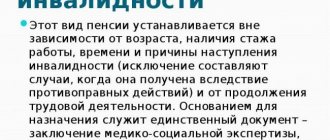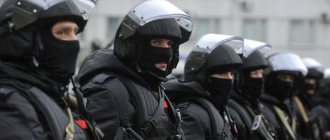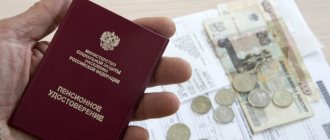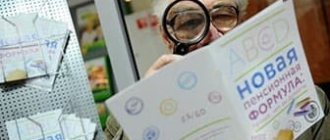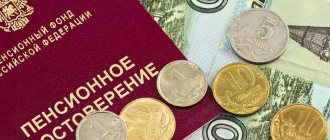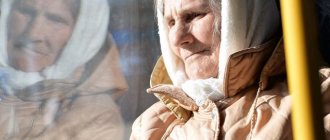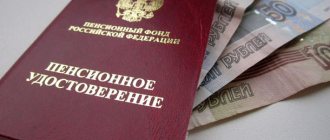Pensioners who live in our country, unfortunately, do not always receive a pension that is enough to live on. From the point of view of the law, such a pension is defined as an amount of funds that is below the subsistence level. So that pensioners could somehow make ends meet, a special additional payment to the pension was invented. What is it and how to get it, we will look further in our article.
FSD is a pension supplement that is due to pensioners included in the category of the country's poor population
What is FSD for retirement?
So, FSD stands for Federal Social Surcharge. The establishment of this additional payment is made to pensioners who have stopped working due to the onset of a specific age threshold, illness or other reasons. However, it is very important that one condition be met: the pensioner must receive a state payment (pension), the amount of which does not correspond to the minimum cost of living that is relevant for a particular subject of our country.
Federal Law 178 Article 12.1. Social supplements to pensions
It turns out that if a pensioner receives the minimum possible pension, then the state must pay him an additional certain amount of funds, which will allow him to receive the very minimum living wage that one person needs to survive in our country.
Of course, quite often the subsistence level is not enough for a decent existence, but these funds can at least allow a pensioner to survive.
The purpose of this benefit is to support citizens who are disabled, aimed at providing them with the opportunity to survive
How is the amount of the Federal social supplement to pension determined?
To determine the amount of the Federal social supplement added to the pension of citizens living in our country, the following monetary payments are taken into account, which, according to the legislation of our country and its individual regions, are established for pensioners:
- the amount of the pension itself;
- the size of all additional sources of material support of a social nature;
- monthly payment of funds (in particular the price of a set of social services);
- other measures of legally established social support that have a monetary value (for example, payment for telephone communications of a pensioner, payment for utilities and housing, payment for the use of all types of transport), excluding those measures of social support that are provided to pensioners at a time.
If a pensioner already receives a large pension and other social benefits, then most likely he is either not entitled to a pension supplement or is entitled to a very small one.
Taking into account the amounts of these payments will inversely affect the amount of the surcharge. So, if all of the listed accruals have a maximum amount, then the Federal social supplement will decrease, and vice versa, if the pensioner received really small amounts before its appointment, then it will be large in order to compensate for the lack of funds at least to the minimum level, that is living wage.
If the amount of all accrued material support for a pensioner is the minimum subsistence level, but the basic pension is less than this amount, the citizen is no longer entitled to a payment, since in this case he will not be officially considered poor.
Please note: the amount of the cost of living in each individual region of the Russian Federation will vary, therefore, if, for example, you have studied only the average amount of this payment in the country, you may later be surprised when you receive the wrong amount of funds, therefore, it is better to clarify the exact amount of the surcharge in advance.
The cost of living is calculated for each region separately
What it is
Citizens who have retired due to age receive transfers from the Pension Fund based on previously transferred contributions.
The procedure for calculating and transferring funds is regulated in detail in 400-FZ. The Law “On Insurance Pensions” does not establish a minimum amount of payments, only general grounds for receiving them.
In some cases, a citizen has not accumulated the required length of service and receives a social pension.
A situation may arise when payments from the budget do not even cover the legally established minimum needs.
In this case, the state provides citizens with financial assistance in the form of a social supplement up to the size of the PMP.
How are the social allowances in question assigned and paid?
Receiving an allowance, like all other social payments in our country, is of an application nature. In other words, funds will be credited to you only if you appear at the relevant government authorities with a statement indicating a request to receive a payment.
Only on the condition that you declare your desire to receive funds in the form of FSD, then you will be able to obtain them, otherwise no one will forcibly pay them to you
At the same time, as you remember, only non-working pensioners have the right to submit an application, since working people are considered able-bodied.
The assignment of payments will be made starting from the first day of the month that followed the previous 30-day calendar period within which the pensioner applied for the accrual of the specified payment.
Please note: the only situation in which the Federal social supplement is assigned without a declaration relates to children. At the same time, these children will also be pensioners, only in this case their pension will be assigned not due to reaching a certain age, but for the following reasons:
- due to children having disabilities;
- due to the fact that children who have not reached the age of majority, that is, the age of 18, have lost their breadwinner.
Not only older citizens can be called pensioners, but also persons who, for example, receive a disability pension
From time to time, citizens have the question of how to register disability for a pensioner in order to receive all the required benefits. In a special article we will examine this issue in detail.
Thus, pensioners applying for this payment can be not only old men and women, but also people of much younger age. Moreover, regardless of which category you belong to, the Federal social supplement will be established for you for the same period as the main pension, in accordance with the letter of the law.
An application for the establishment of a federal social supplement to a pension can be submitted through the Pension Fund website
So, for example, pensioners who retired due to the fact that they have reached a certain age (in our country this age threshold is now 60 years for women and 65 years for men) will receive this additional payment as long as their pension is valid, that is, until the end, essentially, of his life.
The same persons who have lost their breadwinner and receive a pension due to being a minor will receive this additional payment until they turn 18 years old, since, according to the law, at this age they will already have reached working capacity and will be able to support themselves.
The payment of the bonus we are interested in will occur differently in some cases.
There are many nuances that have a direct impact on the payment of the Federal social supplement
Table 1. Nuances affecting the procedure for paying the Federal social pension supplement
| Category of persons | How does pension payment work? |
| This category of persons receives a pension directly from the territorial body of the Pension Fund of the Russian Federation. | The funds are transferred by the organization to the pensioner’s personal account simultaneously with the payment of the pension. |
| Other categories of surcharge recipients | The funds are transferred separately to the personal account of the person who is a pensioner, which was indicated in the application for the addition of the Federal social supplement to the pension. |
Payments and benefits to federal beneficiaries
These are disabled people of groups I, II, III, disabled children, war veterans and veterans, family members of deceased servicemen, citizens affected by radiation and man-made disasters. The main category of federal beneficiaries are disabled people of groups I, II, III.
Why are these categories of citizens called federal beneficiaries and how do they differ from regional beneficiaries?
They are called “federal” because funds for the provision of state social support measures for them come directly from the federal budget.
Benefits for certain categories, such as labor veterans, rehabilitated people, home front workers and some others, are financed from the local regional budget, which is why such beneficiaries are called “regional”.
So the difference is in the source of funding.
This division occurred in 2005, when powers regarding social support measures were distributed between the federation and the constituent entities.
The monthly cash payment is the result of the so-called monetization of benefits. Why is the Pension Fund doing this, since these benefits have nothing to do with pensions?
Indeed, the monthly cash payment that is made to federal beneficiaries is the result of the so-called monetization, which has been carried out since 2005.
In this process, the Pension Fund is defined by the Government of the Russian Federation as the body authorized to keep records of citizens who are entitled to state social support measures at the expense of the federal budget.
He assigns monthly cash payments and organizes their delivery to the recipient along with the pension.
The provision of benefits in kind, for which this format is possible at the choice of the beneficiary (medicine provision, sanatorium treatment and travel to the place of treatment), is carried out by other authorized bodies: healthcare, social insurance fund.
What benefits were monetized to federal beneficiaries?
All benefits that were previously provided in kind were replaced by monetary compensation. Let's take people with disabilities, for example.
Until 2005, they could ride public transport for free, receive a 50 percent discount when paying for a telephone, have dentures installed free of charge, on a first-come, first-served basis, or go to a sanatorium, etc.
So, from January 1, 2005, all these benefits were replaced by a monthly cash payment, after receiving which the beneficiary must pay for the services themselves.
But here it is important to note that some benefits are irrevocably replaced by monetary compensation, that is, the beneficiary cannot choose whether to receive these services in kind or in cash.
These, in particular, include benefits for paying for a telephone, a collective antenna, travel on public transport and dental prosthetics. And part of the benefits, at the recipient’s choice, can be provided either in kind or in cash.
This is the so-called set of social services (NSS), which includes medication provision, sanatorium-resort treatment, travel on suburban railway transport, as well as travel to and from the place of treatment. Moreover, it is precisely for these benefits that the legislator has determined the monetary equivalent.
Why? So that in the case when a citizen refuses to receive these benefits in kind, he knows how much to compensate him in money.
It turns out that benefits for dental prosthetics, payment for telephones, antennas and travel on public transport cannot be obtained in kind?
No, these benefits are monetized, and their replacement in kind is not provided for by law.
How much of the monthly cash payment is for travel on public transport?
But it is impossible to give a direct and unambiguous answer to this, since the legislation does not define the monetary equivalent of those benefits that are clearly replaced by cash payments.
As I have already said, the cash equivalent is established by law only for those benefits that can be provided either in kind or in cash.
But for those who only use money, the legislator does not decipher it.
But, knowing which benefits are monetized, you can approximately (relatively, approximately) distribute this amount.
For example, let’s take a disabled person of group II. For this category, the monthly cash payment from 02/01/2018 is provided in the amount of 2701.67 rubles, it is distributed as follows:
| EDV | Amount (rub.)2701.67 rub. | What are the benefits | How can you receive |
| cash payment | 1580,26 | – dentures, – telephone payment, – antenna payment, – travel on public transport | Cash payment only. Cannot be replaced with natural form |
| set of social services | 1121,41 | – drug provision (RUB 863.75) – sanatorium-resort treatment (RUB 133.61), – travel to and from the place of treatment, travel by suburban railway transport (RUB 124.05) | Can be received either in cash or in kind |
The table shows that four benefits (unambiguously replaced by money) account for 1,580.26 rubles. If you subtract from this amount the cost of benefits for the telephone and antenna (50% telephone, maximum 206 rubles, this is if the unlimited tariff is 516 rubles.
, antenna - about 100 rubles), 1172.09 rubles remain. (1478.09 – 206 – 100) for travel and dentures. Dentures are difficult to calculate and deduct; the service is, of course, expensive, but it is not used every month or even every year.
Here is an approximate (conditional) calculation.
It turns out that those citizens who are federal beneficiaries have been receiving monetary compensation for travel on public transport since 2005, while regional beneficiaries received this monetization only in November 2015?
It turns out that way. The benefit for paying for travel on public transport for federal beneficiaries has been monetized and is provided in the form of a monthly cash payment.
Can a person receive both federal and regional benefits?
This is impossible at the same time. If a citizen has the right to benefits on several grounds, for example, as a disabled person and as a labor veteran, then, at his choice, benefits are provided on only one basis, which is more beneficial for the person.
A citizen cannot take part of the benefits as a disabled person, and part as a labor veteran; he chooses a category and uses the whole range of measures provided for this category.
Why can you apply to change the form of receiving a set of social services only once a year until October 1, and why will this decision be implemented only from next year?
The monthly cash payment, including a set of social services, is financed from the federal budget. Work on its formation for the next financial year begins by October 1.
Data on federal beneficiaries, on those who chose the natural form, or, conversely, abandoned it, is needed by the Government of the Russian Federation in order to correctly allocate funds to the budget.
That is why the choice is made before October 1, and begins to take effect only next year, after the federal budget has been approved and funds have been allocated to the relevant departments.
Source: https://doorinworld.ru/stati/vyplaty-i-lgoty-federalnym-lgotnikam
In what cases is the payment of the Federal social supplement suspended?
Payment of FSD towards pension may be suspended. Unfortunately, there are many different reasons for this. Let's look at them further in the table.
Table 2. Reasons for suspending the payment of the Federal social pension supplement
| Cause | Description |
| Suspension or termination of payment of the relevant pension | As you might understand, there can be many reasons why pension payments are suspended or terminated. For example, the retirement of a pensioner who received a survivor's payment from a minor age, that is, his becoming an able-bodied citizen, causes the termination of pension payments, and, as a consequence, the termination of accrual of the Federal pension supplement. |
| For the period of work or other activity | Provided that the pensioner has taken up work or any other activity in which he receives payment and is subject to compulsory pension insurance by law, the pensioner also cannot receive the required additional payment. |
| The total amount of social supplements is equal to the subsistence minimum | Provided that all the money accrued to the pensioner, which he is entitled to receive from the state, in total has reached the minimum amount that is needed in order to live in a particular region, then the payment of the Federal social supplement is cancelled. |
If a pensioner suddenly goes back to work, for the duration of his entire work activity he no longer has the right to receive the required additional payment.
Thus, if a pensioner encounters circumstances that deprive him of the right to receive this bonus, he must inform the Pension Fund of our country about this, and immediately. This applies to all cases of employment, training, employment and other situations that would entail changes associated with this additional payment.
Provided that the recipient of the Federal social bonus does not bring any notice to the Pension Fund directly in the month of employment or does not verbally declare that appropriate temporary or permanent changes have occurred in his life, the territorial body of the Pension Fund will be forced to take all possible measures aimed at compensation amounts of the Federal social allowance.
Only those amounts that were paid to the pensioner excessively and through his fault in the framework of legal proceedings, if required, will be reimbursed.
Who is entitled to additional payment?
The financial assistance in question is available to all citizens who have received a federal pension.
The reasons for receiving funds do not matter. This could be a survivor's pension, an old-age pension, a disability pension, etc.
The total amount of all additional payments from the budget should not exceed the PMP.
Cash transfers are subject to accounting, with the exception of one-time payments.
The increase is only available to non-working pensioners. This means that the citizen does not carry out activities that require mandatory pension contributions. In this case, a citizen can, for example, rent out an apartment.
The cost of living in 2021
The monetary value was approved by Government Decree No. 1490 of December 8, 2017.
In this document, the minimum is defined for various segments of the population.
It is assumed that the needs of a pensioner should be satisfied with an amount of 8,726 rubles.
The cost of living includes the following expenses:
- purchasing a set of food products to meet the basic needs of the body;
- purchase of some non-food products (clothing, shoes, hygiene products, household items);
- obtaining basic services (utilities, medical, transport, etc.).
It is believed that this minimum allows a person to satisfy his needs without harm to health. Although this amount is not enough for all pensioners.
Amounts of living wages for pensioners by region of the country
Of course, in order to have an idea of how much extra money you will be paid, you need to roughly understand what the cost of living is for a particular region of our country. As we have already said, the amounts for each subject, although slightly, vary, and as a result, the amounts of additional payments will also differ slightly. Let's look at the table that shows the minimum cost of living for the regions of our country.
A social supplement to pensions for non-working pensioners is only due if the pension of the persons sought is not equal to the minimum subsistence level, but is less than the required amount
Table 3. Living wages by regions of Russia
| The subject of the Russian Federation | The minimum cost of living in rubles |
| Belgorod region | 8 016 |
| Bryansk region | 8 441 |
| Vladimir region | 8 452 |
| Voronezh region | 8 620 |
| Ivanovo region | 8 460 |
| Kaluga region | 8 547 |
| Kostroma region | 8 549 |
| Kursk region | 8 600 |
| Lipetsk region | 8 620 |
| Oryol Region | 8 550 |
| Ryazan Oblast | 8 493 |
| Smolensk region | 8 674 |
| Tambov Region | 7 489 |
| Tver region | 8 726 |
| Tula region | 8 622 |
| Yaroslavl region | 8 163 |
| Moscow | 11 816 |
| Moscow region | 9 527 |
| Belgorod region | 8 016 |
| Republic of Karelia | 8 726 |
| Komi Republic | 10 192 |
| Arhangelsk region | 10 258 |
| Nenets Autonomous Okrug | 17 956 |
| Vologda Region | 8 726 |
| Kaliningrad region | 8 726 |
| Saint Petersburg | 8 726 |
| Leningrad region | 8 726 |
| Murmansk region | 12 523 |
| Novgorod region | 8 726 |
| Pskov region | 8 726 |
| The Republic of Dagestan | 8 680 |
| The Republic of Ingushetia | 8 726 |
| Kabardino-Balkarian Republic | 8 726 |
| Karachay-Cherkess Republic | 8 618 |
| Republic of North Ossetia-Alania | 8 064 |
| Chechen Republic | 8 719 |
| Stavropol region | 8 135 |
| Republic of Adygea | 8 138 |
| Republic of Kalmykia | 7 755 |
| Krasnodar region | 8 537 |
| Astrakhan region | 7 961 |
| Volgograd region | 8 535 |
| Rostov region | 8 488 |
| Republic of Crimea | 8 530 |
| Sevastopol | 8 722 |
| Republic of Bashkortostan | 8 320 |
| Mari El Republic | 8 036 |
| The Republic of Mordovia | 8 194 |
| Republic of Tatarstan | 8 232 |
| Udmurt republic | 8 502 |
| Chuvash Republic | 7 953 |
| Kirov region | 8 474 |
| Nizhny Novgorod Region | 8 100 |
| Orenburg region | 8 059 |
| Penza region | 7 861 |
| Perm region | 8 503 |
| Samara Region | 8 413 |
| Saratov region | 7 990 |
| Ulyanovsk region | 8 474 |
| Kurgan region | 8 630 |
| Sverdlovsk region | 8 726 |
| Tyumen region | 8 726 |
| Chelyabinsk region | 8 586 |
| Khanty-Mansi Autonomous Okrug-Yugra | 11 708 |
| Yamalo-Nenets Autonomous Okrug | 13 425 |
| Altai Republic | 8 594 |
| The Republic of Buryatia | 8 726 |
| Tyva Republic | 8 726 |
| The Republic of Khakassia | 8 543 |
| Altai region | 8 543 |
| Krasnoyarsk region | 8 726 |
| Irkutsk region | 8 723 |
| Kemerovo region | 8 347 |
| Novosibirsk region | 8 725 |
| Omsk region | 8 480 |
| Tomsk region | 8 561 |
| Transbaikal region | 8 726 |
| The Republic of Sakha (Yakutia) | 13 951 |
| Primorsky Krai | 9 151 |
| Khabarovsk region | 10 895 |
| Amur region | 8 726 |
| Kamchatka Krai | 16 543 |
| Magadan Region | 15 460 |
| Sakhalin region | 12 333 |
| Jewish Autonomous Region | 9 013 |
| Chukotka Autonomous Okrug | 19 000 |
| Baikonur | 8 726 |
State support is very important for pensioners
Let's sum it up
The federal social pension supplement is a kind of monetary support from the state to pensioners who are below the poverty line, that is, they receive money that is not enough to have at least a monthly subsistence minimum. This additional payment, in fact, serves to “hold out” the pension to the required subsistence level. Unfortunately, it is not used in every case, and this must be taken into account. And also remember that payment may be suspended at any time.
